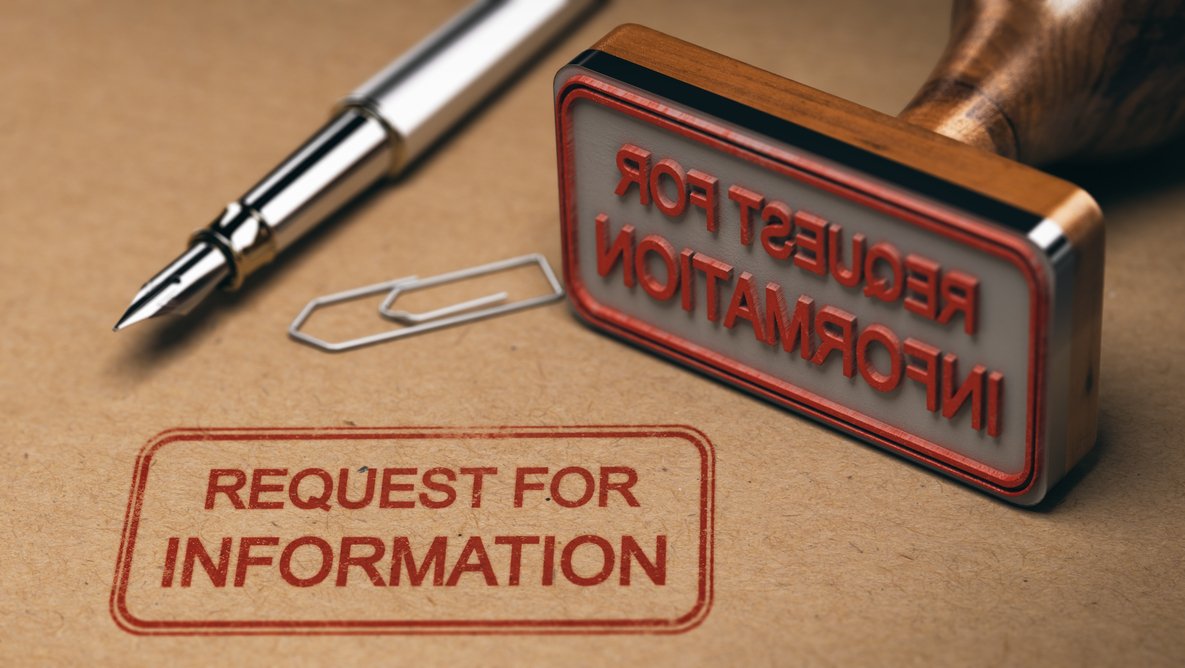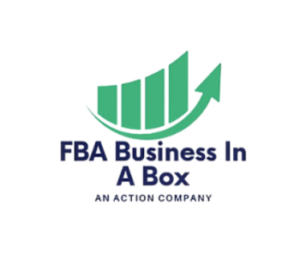How to Find a Trustworthy Supplier?
Finding trustworthy suppliers is of paramount importance in e-commerce as it can have a profound and lasting impact on a seller’s brand. Here are steps to help you find a reliable supplier:
- Define Your Requirements
- Research and Identify Potential Suppliers
- Check Supplier Credentials
- Assess Reputation and Experience
- Request Samples
- Visit Their Facility
- Check References
- Payment Security
- Have Backup Suppliers
- Legal Considerations
Define Your Requirements

Quality Standards
This refers to the specific criteria and benchmarks that your product must meet to align with your brand’s reputation and customer expectations. For instance, if you’re sourcing electronic gadgets, you might specify that the products must meet certain safety certifications, use high-quality materials, and adhere to industry standards for performance.
Specify that the smartphones must adhere to industry-leading quality standards, including certifications for electromagnetic radiation safety, battery performance, and screen durability. Emphasize the importance of high-quality materials and workmanship.
Quantity
Clearly stating the desired quantity or volume of the product you intend to purchase is crucial. Suppliers need to know whether you’re seeking a small batch for initial testing, a large bulk order for regular inventory replenishment, or something in between. This quantity requirement also helps suppliers plan their production and logistics accordingly.
Indicate that you initially require 1,000 units for your product launch, with the potential for larger orders as demand increases. This helps suppliers understand your immediate needs and your potential for scaling up.
Pricing
Transparency in pricing expectations is essential to avoid misunderstandings or hidden costs. You can specify your target price range or budget constraints, which allows suppliers to provide quotes or proposals that align with your financial expectations. This can also include any desired terms for pricing negotiation.
State your target price range per unit, considering factors such as production costs, shipping fees, and desired profit margins. Express your openness to volume-based discounts for larger orders to incentivize suppliers to offer competitive pricing.
Specific Features or Specifications
This part of the requirement is where you get into the nitty-gritty details of what you want. It involves outlining any unique features, technical specifications, or customization requirements your product must have. For example, if you’re sourcing apparel, you might specify the type of fabric, color options, sizing, and any special design elements like embroidery or printing.
Specify that the smartphones should have a minimum of 128 GB of storage, a high-resolution camera with at least 12 megapixels, and compatibility with the latest operating system. Additionally, request that the devices be available in three color options: black, silver, and rose gold.
Research and Identify Potential Suppliers

Online Directories
Online directories are digital platforms that compile information about a wide range of suppliers across industries. These directories typically provide essential details about suppliers, including their contact information, product offerings, certifications, and customer reviews. Utilizing online directories allows you to cast a broad net when searching for potential suppliers, making it easier to identify a diverse pool of candidates for your online store, online business, electronic commerce, online marketplaces, ecommerce company, online sales, start an ecommerce business, ecommerce business, e-commerce platform, business to business, own ecommerce store, ecommerce businesses, and services online.
Start by searching reputable online directories dedicated to leather goods manufacturers and suppliers. These directories provide a wealth of information about suppliers’ capabilities, product offerings, and contact details. You can compile a list of potential domestic and international suppliers based on your initial research.
Industry Trade Shows
Industry-specific trade shows and exhibitions provide a valuable opportunity to meet potential suppliers face-to-face. These events bring together suppliers, manufacturers, and industry professionals, allowing you to evaluate product offerings, establish personal connections, and gain insights into the latest trends and innovations within your niche, whether you operate an ecommerce store, e-commerce store, engage in e-commerce transactions, run an online retail or e-commerce website, or operate as an online retailer. Trade shows can be especially beneficial for finding unique or niche suppliers to support your business online or if you have a business model that combines physical store and e-commerce businesses. These events offer a chance to explore new business website opportunities and expand your own website presence.
Attend industry-specific trade shows and exhibitions related to leather products. These events often feature both local and international suppliers showcasing their craftsmanship. Take advantage of this opportunity to assess the quality of their products, establish relationships, and inquire about their production capabilities.
Trade Associations
Trade associations are organizations that represent specific industries or sectors, including the e-commerce industry. They often maintain directories of member companies, including suppliers who offer digital products and services for e-commerce sales. Joining or connecting with relevant trade associations within the e-commerce industry can provide you with access to a network of trusted and specialized suppliers who have a vested interest in upholding industry standards and best practices. This can be particularly valuable if you’re involved in selling products and digital commerce, aiming to enhance your online shopping experience, and growing your business online, whether it’s through an e-commerce store or other e-commerce businesses within the online marketplace.
Join a leather industry trade association that connects you with established suppliers. These associations typically maintain directories of members, making it easier to identify reliable and skilled suppliers in your niche. Engage with association members to gain insights into their expertise and track record.
Domestic and International Suppliers
The choice between domestic and international suppliers depends on your business’s specific needs and budget considerations:
Domestic Suppliers
Choosing domestic suppliers may offer advantages such as shorter shipping times, lower shipping costs, and potentially easier communication due to language and time zone similarities. It can be an ideal choice for products with a strong local or regional market.
International Suppliers
Exploring international suppliers can open up opportunities for cost savings, access to unique products, and broader market reach. However, it also introduces challenges like longer shipping times, potential language barriers, and import/export regulations. Conduct thorough due diligence to ensure the reliability of international suppliers.
Depending on your findings and product requirements, you may decide to collaborate with a mix of domestic and international suppliers. Domestic suppliers can provide quick access to products for your local market, while international suppliers may offer cost-effective and unique leather goods to broaden your product range.
Check Supplier Credentials

Supplier’s Legal Credentials:
Business Registration
This refers to the official documentation that confirms the supplier’s legal status as a business entity. It typically includes information such as the company’s name, registration number, address, and ownership details. Verifying a supplier’s business registration ensures that you are dealing with a legitimate and registered entity.
Request the supplier’s official business registration documents, including their company name, registration number, and business address. Ensure that this information matches the details provided in their communications and on their website. This verification confirms the supplier’s legal existence.
Licenses
Depending on the nature of the supplier’s business, they may require specific licenses or permits to operate legally. For instance, a supplier involved in the production of food products might need health and safety certifications. Ensuring that the supplier possesses the necessary licenses demonstrates their commitment to operating within the bounds of the law.
Check if the supplier possesses the necessary licenses for producing and selling organic skincare products. In this case, you might look for certifications related to organic product manufacturing, as well as licenses for cosmetic production, hygiene standards, and product labeling.
Certifications
Some industries and products require certifications to demonstrate compliance with safety, quality, or environmental standards. For example, a supplier of electronics might need certifications for product safety compliance. Confirming that the supplier holds relevant certifications indicates their dedication to delivering products that meet recognized standards.
Since you’re dealing with organic skincare products, inquire about any organic certifications the supplier holds. Organic certifications, such as USDA Organic or Ecocert, demonstrate their commitment to producing products using organic ingredients and sustainable practices.
Adherence to Industry Standards and Regulations:
Industry Standards
Different industries have established standards and best practices that govern the production, quality, and safety of products. Ensure that the supplier is aware of and adheres to these industry-specific standards. This can include standards related to materials, manufacturing processes, and product testing.
Discuss the supplier’s adherence to industry standards for skincare product manufacturing. In the skincare industry, compliance with Good Manufacturing Practices (GMP) and adherence to guidelines from organizations like the Cosmetic Ingredient Review (CIR) can be crucial to product quality and safety.
Regulatory Compliance
Suppliers must comply with local, national, and international regulations governing their products and operations. For example, in the pharmaceutical industry, suppliers must adhere to stringent regulations related to drug manufacturing and safety. Confirming regulatory compliance reduces the risk of legal issues and ensures that the products meet safety and quality standards.
Ensure that the supplier complies with regulatory requirements for skincare products in your target markets. For instance, if you plan to sell in the United States, verify that the products meet the FDA’s regulations for cosmetics, including ingredient labeling and safety testing.
Assess Reputation and Experience

Strong Reputation and Reliability
Reputation
A supplier’s reputation is a reflection of their standing within their industry and among their customers. A strong reputation suggests that the supplier has consistently delivered quality products and services, as well as maintained positive and ethical business conduct.
Begin your search by targeting clothing manufacturers with a reputation for producing high-quality, sustainable fashion items. A strong reputation in the sustainable fashion community suggests that the supplier is committed to ethical production practices and eco-friendly materials. This aligns with your brand values and customer expectations.
Reliability
Reliability refers to the supplier’s consistency in meeting commitments, such as delivering products on time, adhering to quality standards, and providing excellent customer service. Reliable suppliers are predictable and trustworthy partners who fulfill their obligations consistently.
Use online platforms and fashion industry forums to find reviews and ratings of the shortlisted manufacturers. Pay attention to comments related to product quality, ethical sourcing, and reliability in meeting production timelines. Additionally, inquire about references directly from the suppliers you are considering.
Checking Online Reviews, Testimonials, and References
Online Reviews
Online platforms, such as Google, Yelp, or industry-specific review sites, often feature customer reviews and ratings of suppliers. Reading these reviews can provide insights into the supplier’s strengths, weaknesses, and overall customer satisfaction levels.
Testimonials
Suppliers may provide testimonials from satisfied clients on their websites or marketing materials. While these can be informative, it’s essential to balance them with external reviews for a more unbiased perspective.
References
Requesting references from the supplier directly allows you to connect with past or current clients. Speaking with these references can provide firsthand information about their experiences, the supplier’s reliability, and any challenges they may have encountered.
Assessing Supplier Experience
Years in Business
The length of time a supplier has been in business can be indicative of their stability and reliability. Longevity often suggests that the supplier has weathered challenges and adapted to market changes, which can be a positive sign.
Evaluate how long each supplier has been in the sustainable fashion business. Suppliers with a long history in the industry may have established relationships with ethical suppliers and mastered sustainable production techniques over the years. Their experience suggests a higher likelihood of reliability in delivering eco-conscious fashion items.
Request Samples

Quality Evaluation:
Quality
Requesting product samples allows you to assess the quality of the items you intend to source. You can inspect materials, workmanship, and overall durability. High-quality products are essential to maintain your brand’s reputation and customer satisfaction.
Fit for Purpose
Examine whether the product meets its intended purpose and functions as expected. It’s essential that the product performs well and provides value to your customers.
Request samples of the artisanal olive oils to assess their taste, aroma, and texture. Ensure that the oils meet the quality standards you’ve set for your gourmet food products. Note any differences in flavor profiles, such as fruity or peppery notes, and compare them to your customers’ preferences.
Design and Aesthetics:
Design
Evaluate the product’s design, including its aesthetics, ergonomics, and any unique features. Ensure that the design aligns with your brand’s identity and resonates with your target audience.
Brand Alignment
Consider how well the design of the product aligns with your e-commerce store’s overall theme and values. A cohesive design approach strengthens your brand image.
Functionality and Usability:
Functionality
Test the product to ensure it functions correctly and efficiently. Identify any potential flaws or usability issues that could affect the customer experience.
User-Friendly
Assess whether the product is user-friendly and intuitive. Products that are easy to use and understand tend to receive positive customer feedback.
Packaging and Presentation:
Packaging
Evaluate the packaging materials and design. Packaging not only protects the product during transit but also contributes to the customer’s first impression. Well-designed packaging can enhance the perceived value of the product.
Labeling
Check the product’s labeling for accuracy and completeness. Ensure that all required information, such as product name, ingredients, usage instructions, and safety warnings, is clearly and correctly displayed.
Overall Presentation
Consider the overall presentation of the product, including its visual appeal when unboxed. A well-presented product can enhance the customer’s unboxing experience and make a positive impression.
Evaluate the packaging materials for durability and protection during shipping. Additionally, consider the visual appeal of the olive oil bottles when displayed on your e-commerce store. An attractive and well-protected product presentation can entice customers to make a purchase.
Visit Their Facility

Supplier Evaluation and On-Site Visits
Supplier Evaluation
When considering a supplier for your business, you aim to ensure they meet your quality, reliability, and ethical standards. To make an informed decision, you need a thorough understanding of their operations and how they conduct business.
On-Site Visits
An on-site visit involves physically traveling to the supplier’s manufacturing facility, office, or headquarters. It provides an opportunity to see their operations up close, interact with their team, and gain a firsthand perspective of their production processes and work environment.
Insights into Operations
Production Processes
During an on-site visit, you can observe the supplier’s production processes from start to finish. This insight allows you to assess the efficiency, technology, and craftsmanship employed in creating their products. You can identify potential bottlenecks or areas for improvement.
Quality Control
Visiting the facility provides a chance to learn about the supplier’s quality control measures. You can see how they inspect, test, and ensure the quality of their products. Understanding their quality control procedures is crucial for maintaining consistency in the products you source.
Working Conditions and Ethical Considerations
Working Environment
On-site visits enable you to assess the working conditions of the employees and laborers involved in the production process. You can evaluate factors such as workplace safety, cleanliness, and compliance with labor laws. This is important for ethical and responsible sourcing.
Ethical Practices
By engaging with the workforce and management, you can inquire about the supplier’s commitment to ethical practices, such as fair wages, employee benefits, and sustainability initiatives. Understanding their ethical stance aligns with the growing emphasis on corporate social responsibility.
Risk Mitigation:
Identifying Red Flags
On-site visits can reveal any potential red flags or irregularities that may not be apparent through remote communication. This proactive approach helps you mitigate risks associated with unreliable or unscrupulous suppliers.
Check References

Supplier Evaluation and Due Diligence
Supplier Evaluation
When considering a supplier, you need to ensure that they align with your business goals, quality standards, and service expectations. A crucial aspect of this evaluation process is collecting information about the supplier’s track record and performance.
Due Diligence
Due diligence involves thorough research and investigation to assess the suitability and credibility of a potential business partner. In this context, it means verifying the supplier’s claims and assessing their reputation through external sources.
Requesting References
Supplier References
Requesting references from the supplier is a common practice in supplier selection. These references typically include contacts of previous or current clients who have firsthand experience with the supplier’s products or services.
Objective Evaluation
By seeking references directly from the supplier, you aim to get in touch with individuals or organizations that can provide unbiased and candid feedback about their interactions and transactions with the supplier.
Contacting Previous or Current Clients
Inquiry Process
Once you have received a list of references from the supplier, the next step is to reach out to these references. You can initiate contact through phone calls, emails, or scheduled meetings to inquire about their experiences and satisfaction levels.
Feedback Gathering
During these interactions, you ask specific questions related to the supplier’s performance, such as product quality, reliability, communication, adherence to timelines, and any challenges faced. You also seek information about the reference’s overall satisfaction and whether they would recommend the supplier.
Objective Feedback
The primary goal is to gather objective feedback that helps you assess the supplier’s strengths and weaknesses, as well as their suitability for your business needs.
Payment Security

Financial Risk Mitigation
Financial Transactions in Business
Financial transactions are at the core of any business relationship, including purchasing goods or services from suppliers. Ensuring the security and reliability of these transactions is paramount to protect your financial interests.
Risk Mitigation
Businesses often face financial risks such as non-delivery of goods, subpar product quality, or disputes over payment terms. The goal is to minimize these risks and establish trust between parties.
Secure Payment Methods
Escrow Services
Escrow services act as intermediaries that hold funds in a secure account until specific conditions are met, typically related to the delivery and acceptance of goods or services. Using escrow services ensures that the supplier is paid only after you confirm receipt and satisfaction with the products or services.
Letters of Credit
Letters of credit are financial instruments issued by a bank that guarantees payment to the supplier once they meet certain predefined conditions, often related to the delivery of goods or services that meet specified quality and quantity standards.
Protection of Financial Interests
Non-Delivery Protection
Escrow services and letters of credit protect against the risk of non-delivery. Funds are only released to the supplier when you verify that the agreed-upon goods or services have been delivered as expected.
Quality Assurance
These payment methods also provide a mechanism for quality assurance. If the received products or services do not meet the agreed-upon standards, you have the leverage to withhold payment until the issues are resolved to your satisfaction.
Dispute Resolution
In cases of disputes or disagreements, using secure payment methods can simplify the resolution process. The funds held in escrow or guaranteed by a letter of credit can be used as leverage to negotiate solutions.
Have Backup Suppliers

Risk Management and Business Continuity
Risk Mitigation
Every business faces potential risks and disruptions in its supply chain. These risks can include natural disasters, economic downturns, political instability, production delays, or quality issues with the primary supplier.
Business Continuity
The goal of having backup suppliers is to ensure business continuity. When your primary supplier encounters problems that affect the availability or quality of goods or services, backup suppliers can step in to prevent disruptions to your operations.
Diversification and Resilience
Supplier Diversification
Establishing relationships with multiple suppliers for the same or similar products or services is a form of supply chain diversification. It reduces your dependency on a single source and enhances your supply chain resilience.
Flexibility
Backup suppliers offer flexibility in responding to changes in market conditions or disruptions. They can help you adapt quickly to unforeseen challenges, ensuring that you can continue to meet customer demands.
Strategies for Backup Suppliers
Identifying Backup Suppliers
To implement this strategy, you need to identify potential backup suppliers who meet your quality and capacity requirements. These suppliers should be able to quickly ramp up production if needed.
Contractual Agreements
Establishing contractual agreements with backup suppliers is crucial. These agreements should outline terms, pricing, quality standards, and delivery capabilities. Having these agreements in place in advance streamlines the transition in case you need to switch suppliers.
Proactive Risk Mitigation
Proactive Approach
Maintaining backup suppliers is a proactive risk mitigation strategy. It allows you to react swiftly to disruptions rather than scrambling to find alternatives when a crisis occurs.
Minimizing Downtime
By having backup suppliers on standby, you minimize downtime in your supply chain, reducing the impact on your business operations and customer satisfaction.
Legal Considerations

Legal Compliance and Risk Mitigation
Complexity of Contracts
Contracts and agreements often involve legal intricacies and complexities, ranging from contract law to industry-specific regulations. Legal counsel is trained to navigate these complexities and ensure that your contracts comply with applicable laws and regulations.
Risk Assessment
Legal professionals have the expertise to identify potential risks and liabilities in contracts. They can help you assess and mitigate these risks, which is crucial for protecting your business from legal disputes or financial losses.
Contracts as Legal Instruments
Binding Documents
Contracts and agreements are legally binding documents that establish the terms and obligations of the parties involved. They can have far-reaching consequences, so it’s essential that they are well-drafted and legally sound.
Interpretation and Enforcement
Legal counsel can ensure that the language used in contracts is clear and unambiguous. This clarity is critical in preventing misunderstandings and disputes over contract terms. Additionally, they can advise on the enforceability of contract provisions.
Legal Protections and Rights
Protection of Interests
Legal professionals work to protect your interests in contracts. This can include safeguarding your intellectual property rights, defining liability limitations, and securing payment terms that are favorable to your business.
Negotiation Assistance
When negotiating contracts, legal counsel can provide strategic guidance and negotiate on your behalf to secure terms that are in line with your objectives and risk tolerance.
Compliance with Industry Standards:
Industry Regulations
Depending on your business’s industry, there may be specific regulations and standards that contracts must adhere to. Legal counsel can ensure that your contracts meet these industry-specific requirements.
Ethical Considerations
Legal professionals are bound by ethical guidelines, ensuring that their advice and contract drafting are in line with legal and ethical standards.
Finding a trustworthy supplier is an ongoing process that requires due diligence and ongoing relationship management. Building a strong and reliable supplier network is essential for the long-term success of your e-commerce business, so invest the time and effort needed to make informed decisions. Do you want movement in your business? Do you need a long-term connection for your business? Contact us and start achieving your goals today!

